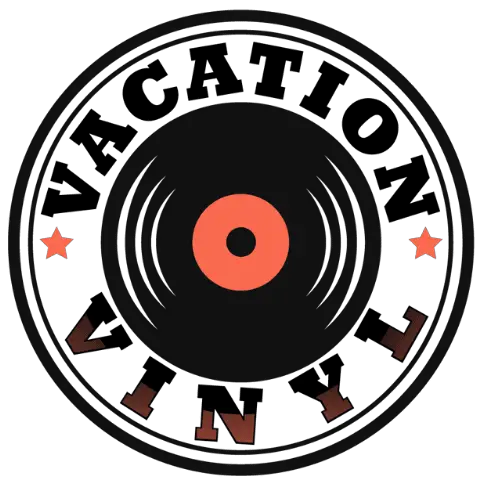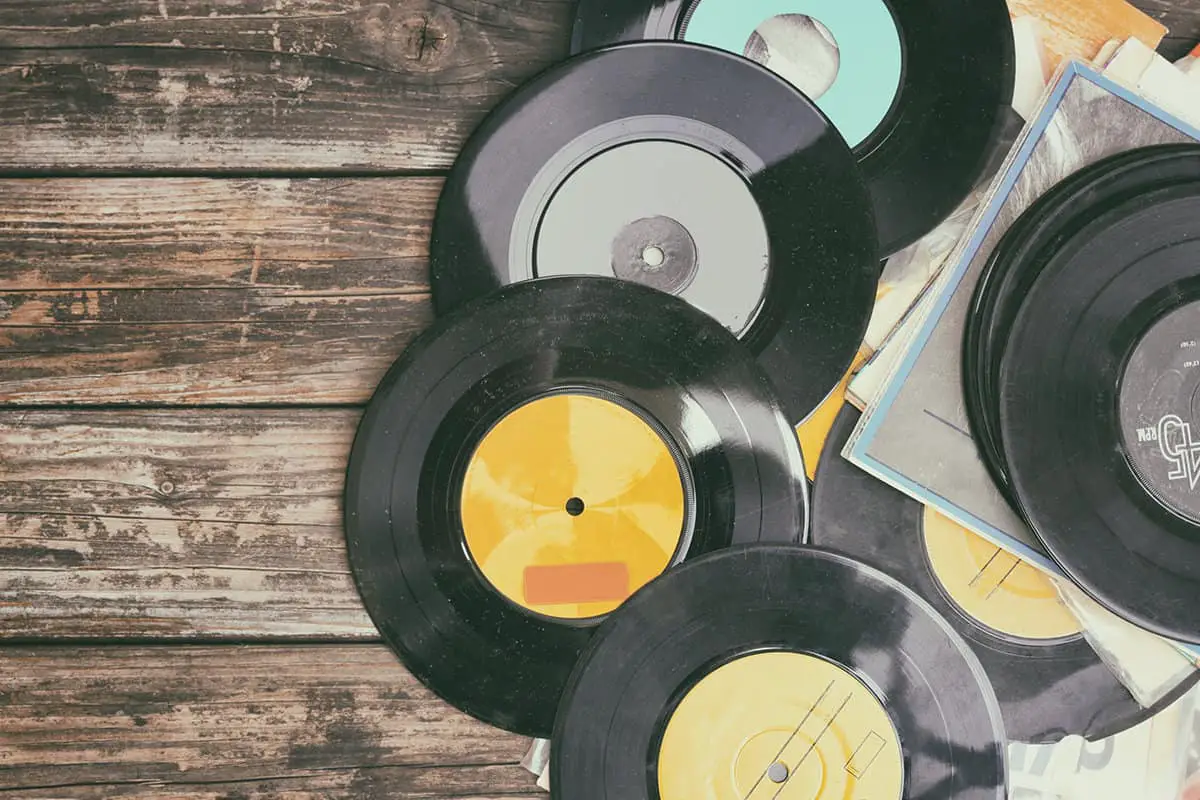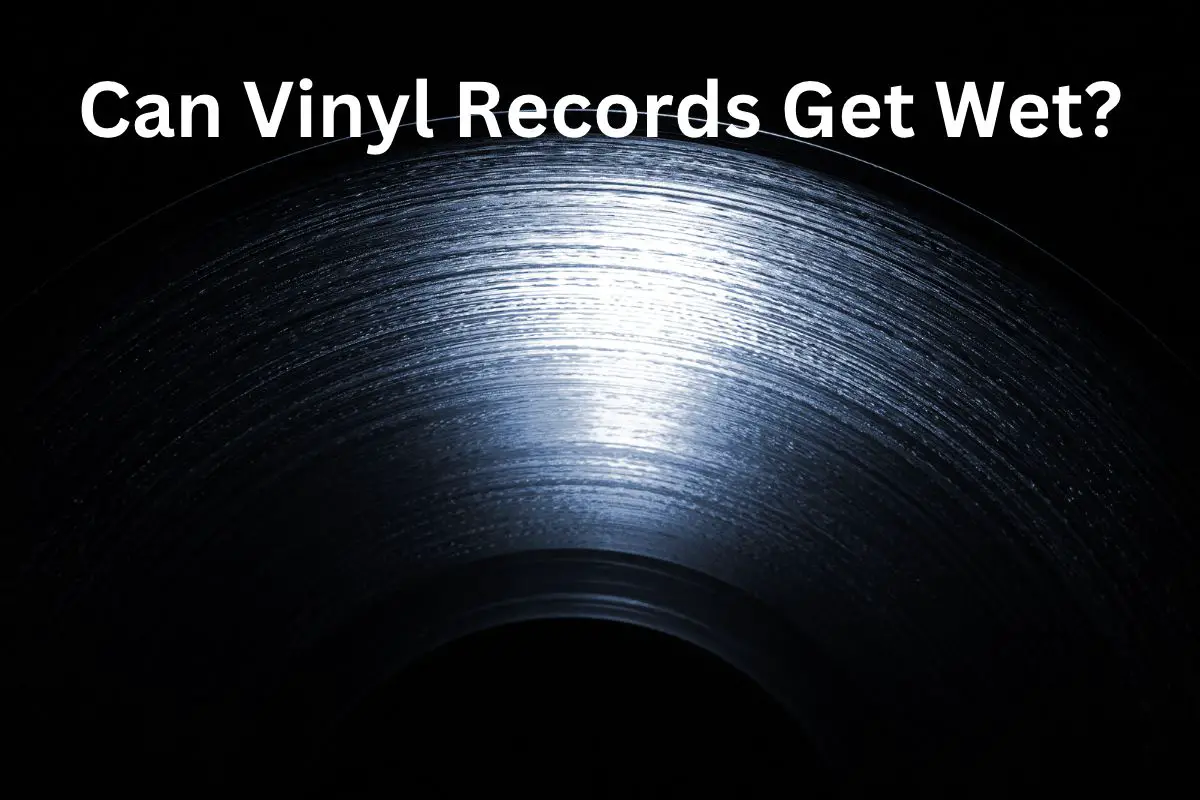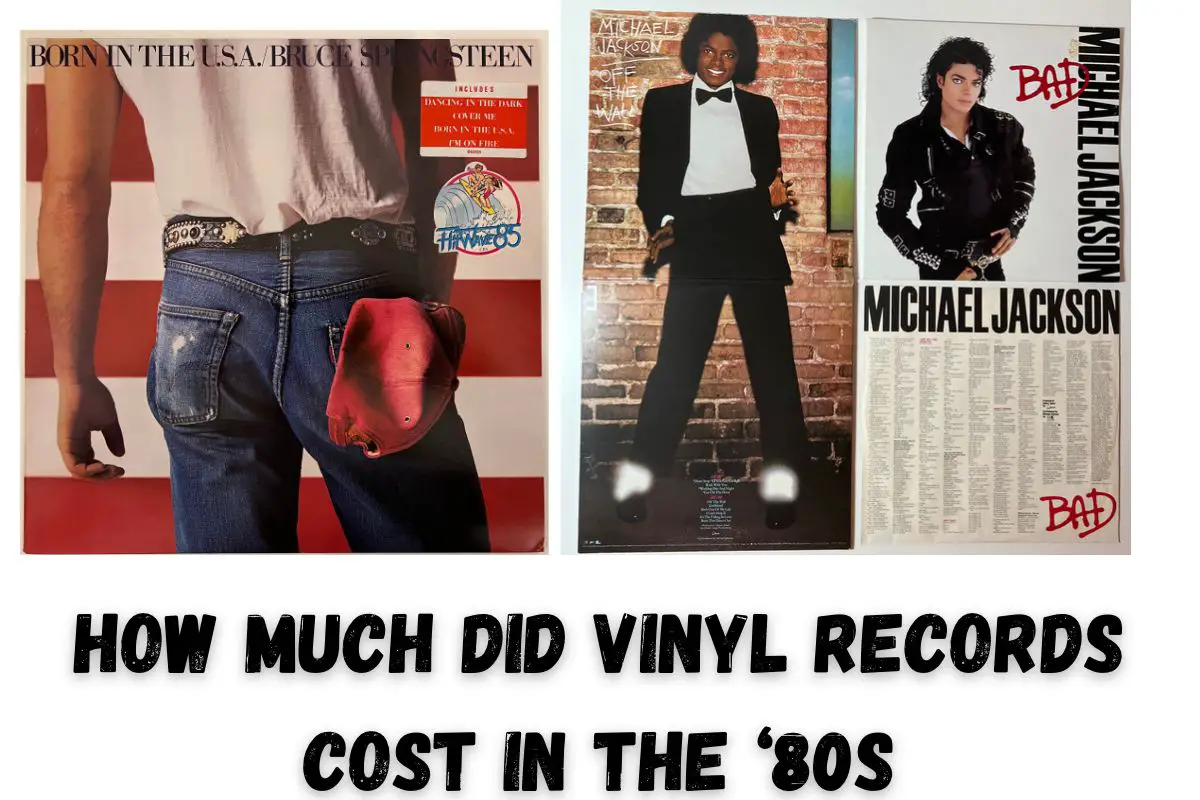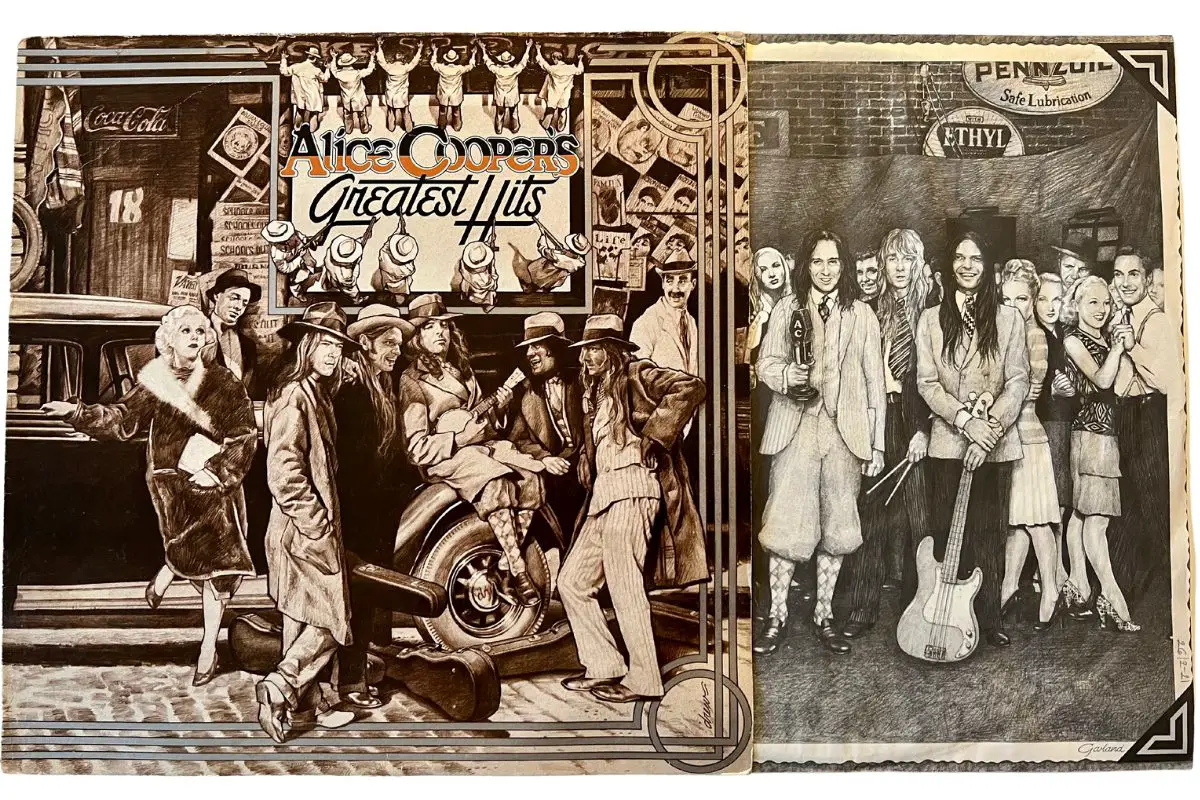This post contains affiliate links.
Vinyl records have been going through a revival since 2007, and it’s safe to say they’ll still be popular in the foreseeable future. Is that enough to make them a good investment?
Vinyl records are not a good investment from a financial point of view. The future price of a record is difficult to predict. They don’t always increase in value, even if they’re rare. However, if you’re building a collection and know what to buy, you may be able to sell it later at a high price.
Vinyl pricing isn’t a straightforward matter. This article will help you make sense of what makes a vinyl record change its value and answer the question — are vinyl records a good investment — in more detail.
Table of Contents
Do Vinyl Records Appreciate?
Some rare vinyl records appreciate over time. However, it’s hard to predict which vinyl records will indeed appreciate. A vinyl record doesn’t become more valuable just because it’s rare.
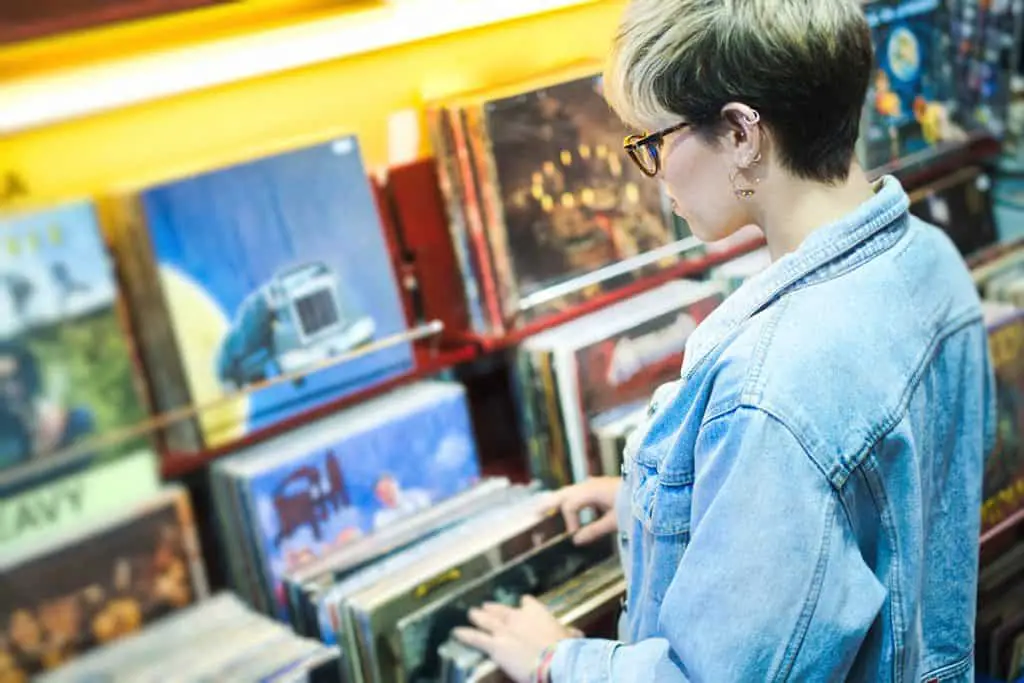
It’s normal for any vinyl collector, especially a new one, to come to a point where they ask themselves about the future of their collection. After dropping as much as hundreds of dollars every month into rare records, will that investment pay off in the future?
There isn’t a sure and stable way to determine how much a specific vinyl record will cost in the future. It depends on how much the artist’s popularity will endure. It’s not an automatic formula where the rarer a disc is, the more it will be worth in two decades.
However, one thing is sure: if what you care about is finance, vinyl is not a good place to put your money. Vinyl can be a great investment from a musical and hobbyist perspective, but don’t count on them to monetarily pay off in the future.
As you’ll see, some records can fetch extremely high prices, especially for original first pressings. There are few of them, and even fewer among those are in good condition.
And that’s the thing: if you want to get the most monetary value out of vintage vinyl, you’d have to conserve it as much as possible, which means not listening to it at all. And if you like vinyl, chances are you’ll want to listen to the records you buy.
If you’re knowledgeable about music or can make an educated guess on which bands will be big in a few years or decades, then you may get lucky and earn some cash.
It’s also about knowing when to sell. Sgt. Pepper’s Lonely Hearts Club Band sold for cheap a few years back, but its price skyrocketed for its 50th anniversary. Today, you can find an original pressing for under $50, but a rare Capitol Records cover can be sold for tens or hundreds of thousands of dollars.
If you’re passionate about vinyl records, you may be able to make money with the right combination of knowledge and luck. However, if you don’t enjoy vinyl in the first place, there are thousands of better and safer ways to invest your money.
Vinyl Records Worth Investing In
If you want to know which vinyl records are worth investing in, check out new presses of established and unknown artists. You’ll also want to learn about classic first presses and records with a history; records from the 90s might be worth checking out.
Stay Updated With New Presses of Established Artists
You can go different ways when buying new, first presses. One of them is purchasing records from established artists that are likely to keep having a following in the future.
This one might be the safest way of making money. For one, you only pay the standard price of new vinyl. Since these releases are usually very limited and the fan base is large, prices are bound to go up at least a bit in the next few years.
The challenge is often purchasing on time since units can run out quickly.
But there’s another caveat: large vinyl releases won’t be as scarce in the future, to the point where investing in them makes no sense from a monetary perspective. It applies only to a few big artists.
For example, consider Taylor Swift’s Evermore. It sold over 100,000 copies in the U.S. in only one week. With so many copies out there, don’t expect its price to go up anytime soon. This strategy works better for limited releases of only a few hundred copies.
Discover New Presses of Unknown Artists
When buying new presses, you can also go the opposite way and buy new records from lesser-known artists you think will become more valuable over time.
Since these releases are usually very limited, they’re bound to be rare in the future. But rarity won’t be enough to fetch a good price. The record also needs to be sought-after.
This strategy implies predicting which small artists will become popular or gain a cult following over the next months or years.
It’s the less predictable category, but it’s also where there’s more money to be made if you make the right purchases. Think of how the first Arctic Monkeys’ single skyrocketed in price a few months after its release.
Of course, you also run the risk of ending with an endless catalog of the kind of records that sell for pennies in record shops.
Take the chance of buying a new record from a small band you like or that seems to have potential. However, going out of your way to buy every obscure release will generate more junk than profits.
Find Classic First Presses
First presses of old albums are often seen as more authentic, and depending on the circumstances, can even sound better.
First pressings are made with the “original” master of the album, often preferred by many audiophiles. Factors like a change in the pressing plant, the quality of the plates, and the mastering can have huge effects on how later presses sound.
However, there’s also a market for presses made by mastering engineers who’ve made a name for themselves, like Bernie Gundam, Rudy Van Gelder, Kevin Gray, and Lee Hulk. In these cases, a later press may be more valuable than the first.
Search for Records With a History
As with any collectible, records with unique stories tend to increase value. Think of complications during the recording, special copies, and the album’s context.
Sex Pistols’ single God Save the Queen is one of the most valuable vinyl records out there because of its context. The label dropped the band just before the record was issued, and most copies were destroyed. The surviving copies can sell for more than $17,000.
There’s also Ringo’s famous first copy of White Album, which sold for $790,000. Prices like these are extreme outliers, but it shows how much context can affect the price of a vinyl record.
The issue with this approach is that it’s harder to find a gem like that at a low price. They usually require a relatively high investment, even if you’re not buying a thousand-dollar copy.
Here is a separate article that I wrote about the Top 10 Most Expensive Vinyl Records.
Find Records From the 90s
Finding vinyl records from the 90s is notoriously difficult. The main reason is that around that time, companies were pushing to replace the vinyl with C.D.s.

In 1988, C.D.s had already surpassed vinyl in sales. A year later, they outsold cassette tapes. When the 90s started, vinyl was losing more and more popularity, and they were still far from their revival.
The result was that the vinyl releases pressed during the 90s were usually very limited, even for popular bands. This combination of rarity and a strong following is what you’re looking for when investing in vinyl.
So, if you find vinyl from the 90s at a reasonable price, you should consider buying it, especially if it’s from a popular band.
Conclusion
People collect vinyl records because they love their warm, accurate sound, not because they’re a great monetary investment. However, if you’re smart about your purchases, you might be able to win some money.
If you’re already buying a vinyl collection, then go ahead and hunt for valuable records. But if you’re just looking for somewhere to invest your money, there are countless better options.
VacationVinyl.com is a participant in the Amazon Services LLC Associates Program, an affiliate advertising program designed to provide a means for sites to earn advertising fees by advertising and linking to Amazon.com. We also participate in other affiliate programs which compensate us for referring traffic.
